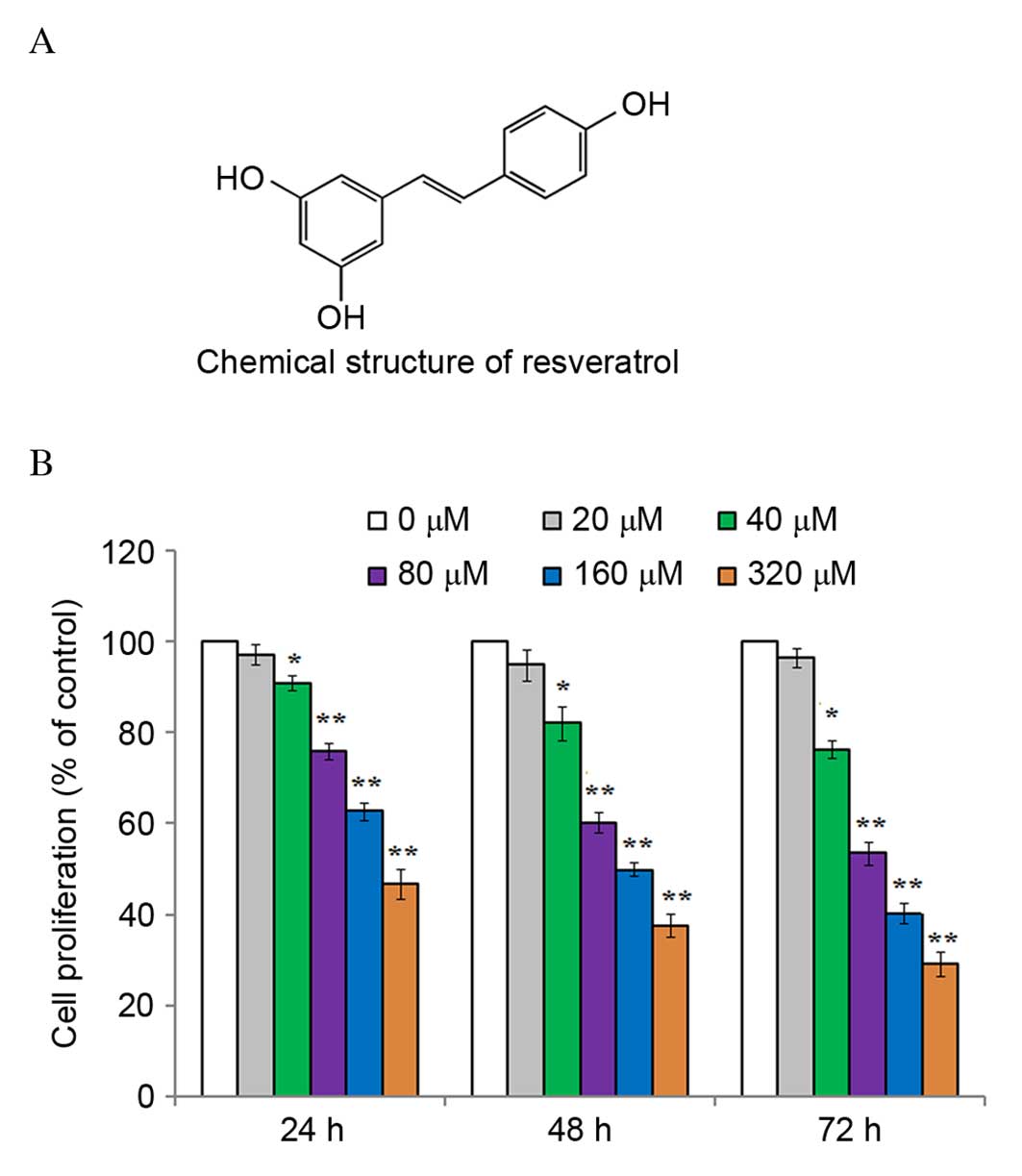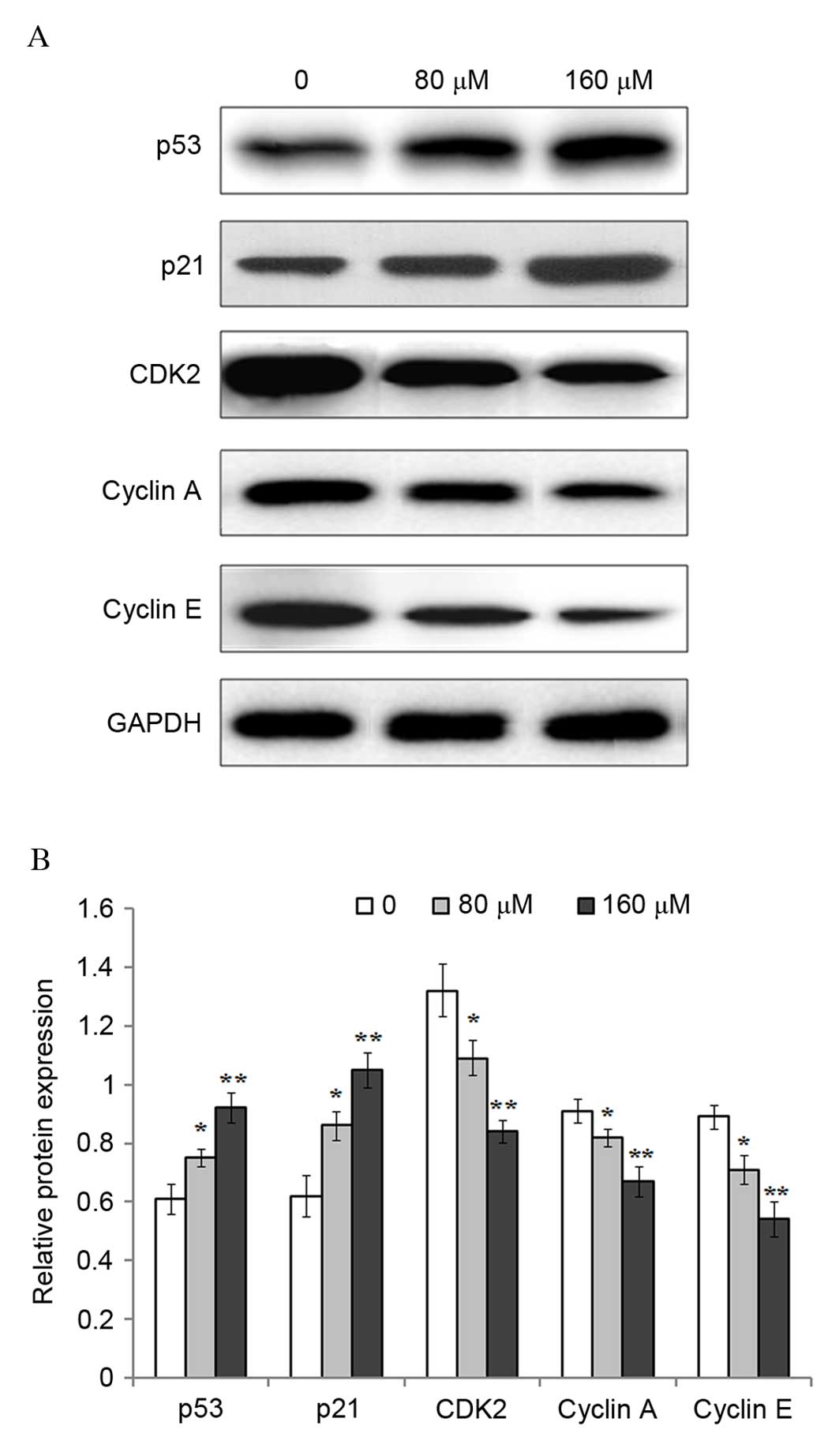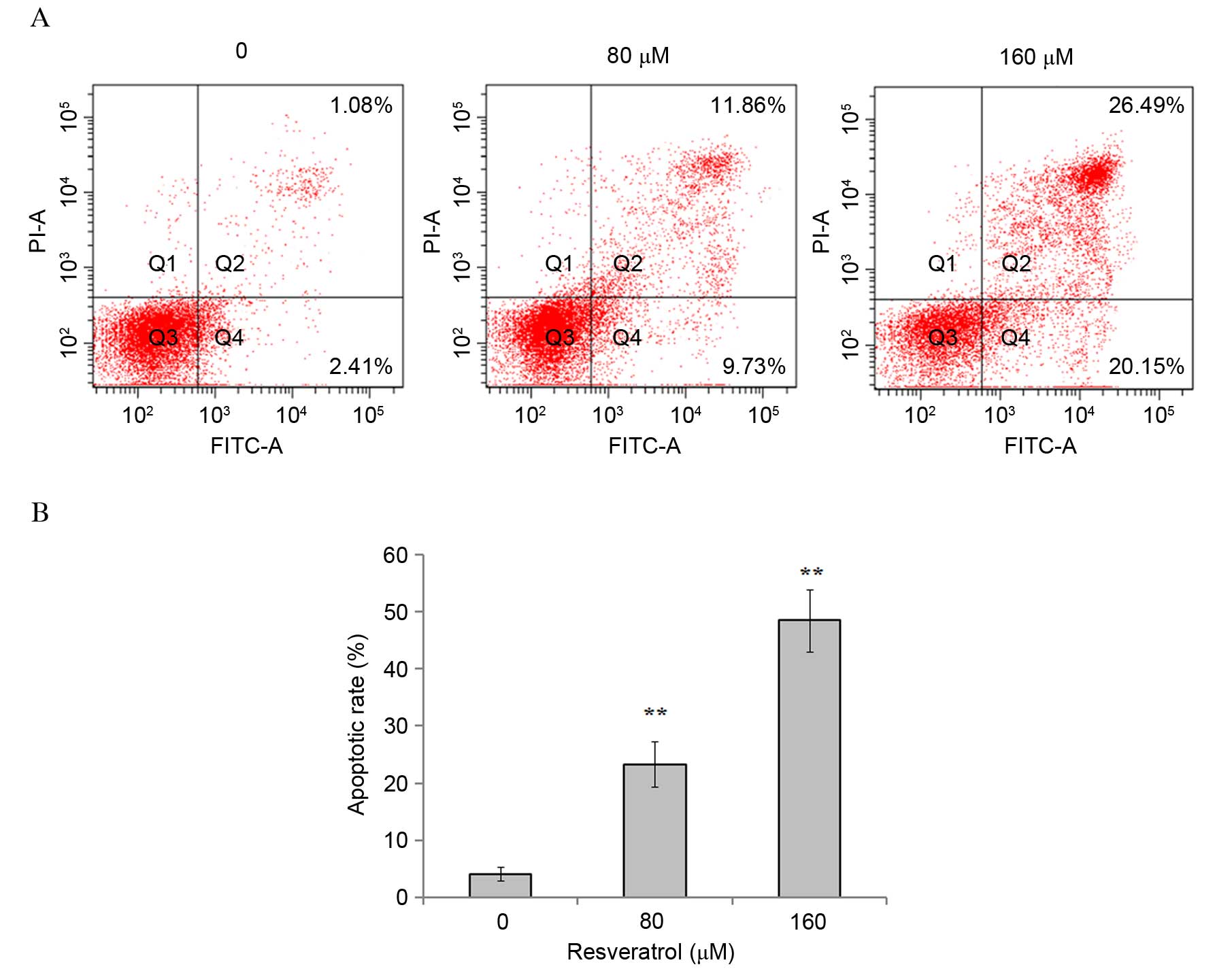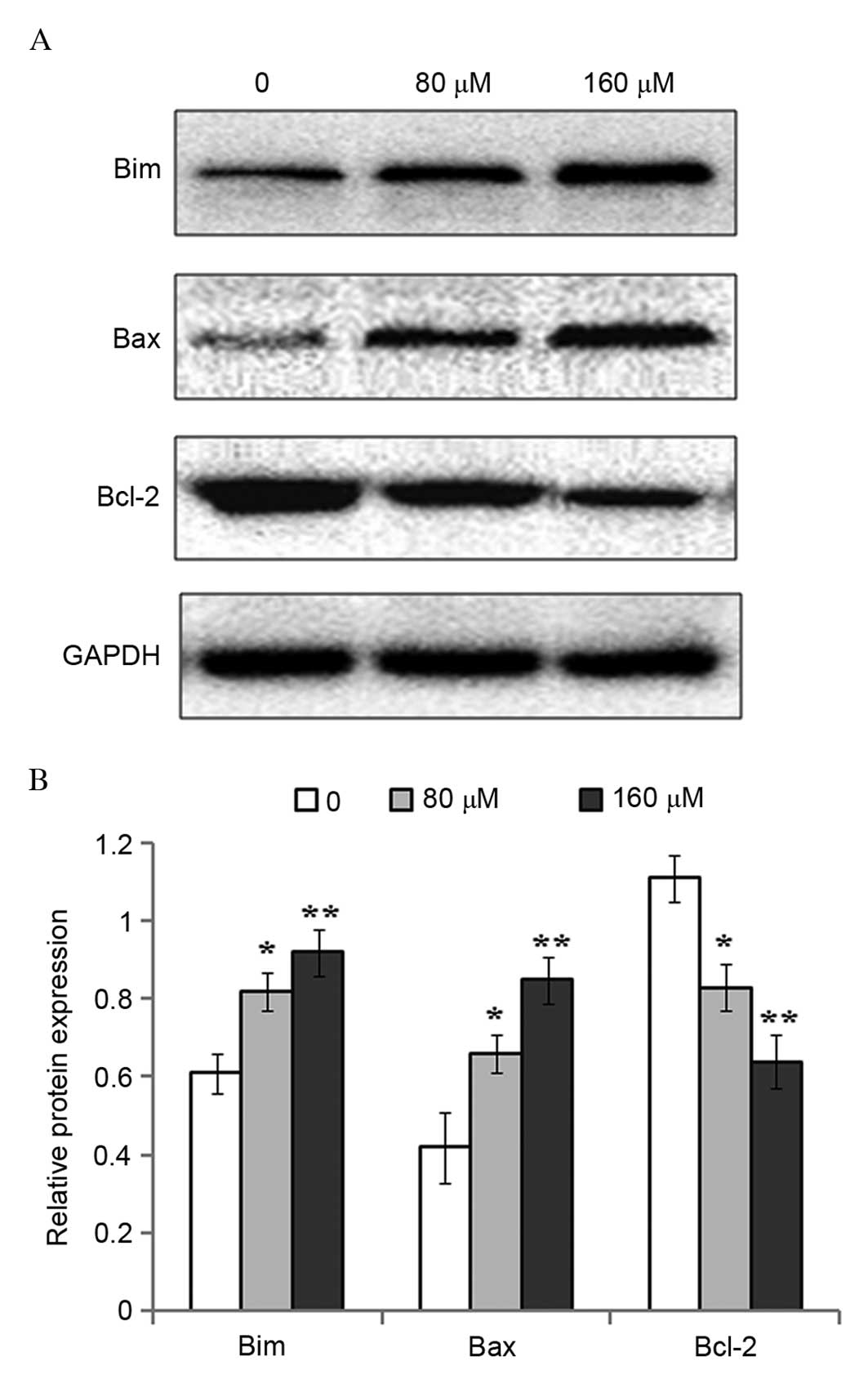|
1
|
Haj-Salem I, Fakhfakh R, Bérubé JC,
Jacques E, Plante S, Simard MJ, Bossé Y and Chakir J: MicroRNA-19a
enhances proliferation of bronchial epithelial cells by targeting
TGFβR2 gene in severe asthma. Allergy. 70:212–219. 2015. View Article : Google Scholar : PubMed/NCBI
|
|
2
|
Hogan SP, Rosenberg HF, Moqbel R, Phipps
S, Foster PS, Lacy P, Kay AB and Rothenberg ME: Eosinophils:
Biological properties and role in health and disease. Clin Exp
Allergy. 38:709–750. 2008. View Article : Google Scholar : PubMed/NCBI
|
|
3
|
Lemière C, Ernst P, Olivenstein R,
Yamauchi Y, Govindaraju K, Ludwig MS, Martin JG and Hamid Q: Airway
inflammation assessed by invasive and noninvasive means in severe
asthma: Eosinophilic and noneosinophilic phenotypes. J Allergy Clin
Immunol. 118:1033–1039. 2006. View Article : Google Scholar : PubMed/NCBI
|
|
4
|
Wong CK, Hu S, Leung KM, Dong J, He L, Chu
YJ, Chu IM, Qiu HN, Liu KY and Lam CW: NOD-like receptors mediated
activation of eosinophils interacting with bronchial epithelial
cells: A link between innate immunity and allergic asthma. Cell Mol
Immunol. 10:317–329. 2013. View Article : Google Scholar : PubMed/NCBI
|
|
5
|
Nutku E, Aizawa H, Hudson SA and Bochner
BS: Ligation of Siglec-8: A selective mechanism for induction of
human eosinophil apoptosis. Blood. 101:5014–5020. 2003. View Article : Google Scholar : PubMed/NCBI
|
|
6
|
Alexander NS, Hatch N, Zhang S, Skinner D,
Fortenberry J, Sorscher EJ and Woodworth BA: Resveratrol has
salutary effects on mucociliary transport and inflammation in
sinonasal epithelium. Laryngoscope. 121:1313–1319. 2011. View Article : Google Scholar : PubMed/NCBI
|
|
7
|
Hiroto Y, Tadokoro K, Tsuda T, Nakazono E,
Ohnaka K, Takayanagi R, Hamasaki N and Tsuda H: Resveratrol, a
phytoestrogen found in red wine, down-regulates protein S
expression in HepG2 cells. Thromb Res. 127:e1–e7. 2011. View Article : Google Scholar : PubMed/NCBI
|
|
8
|
Yao J, Wang JY, Liu L, Li YX, Xun AY, Zeng
WS, Jia CH, Wei XX, Feng JL, Zhao L and Wang LS: Anti-oxidant
effects of resveratrol on mice with DSS-induced ulcerative colitis.
Arch Med Res. 41:288–294. 2010. View Article : Google Scholar : PubMed/NCBI
|
|
9
|
Pervaiz S and Holme AL: Resveratrol: Its
biologic targets and functional activity. Antioxid Redox Signal.
11:2851–2867. 2009. View Article : Google Scholar : PubMed/NCBI
|
|
10
|
Bishayee A, Politis T and Darvesh AS:
Resveratrol in the chemoprevention and treatment of hepatocellular
carcinoma. Cancer Treat Rev. 36:43–53. 2010. View Article : Google Scholar : PubMed/NCBI
|
|
11
|
Glehr M, Fritsch-Breisach M, Lohberger B,
Walzer SM, Moazedi-Fuerst F, Rinner B, Gruber G, Graninger W,
Leithner A and Windhager R: Influence of resveratrol on rheumatoid
fibroblast-like synoviocytes analysed with gene chip transcription.
Phytomedicine. 20:310–318. 2013. View Article : Google Scholar : PubMed/NCBI
|
|
12
|
Chun C, Yang W, Xueding C, Qi Z, Xiaoying
H, Honglei X, Fangyou Y, Chan C, Yuanyuan L, Weixi Z, et al:
Resveratrol downregulates acute pulmonary thromboembolism-induced
pulmonary artery hypertension via p38 mitogen-activated protein
kinase and monocyte chemoattractant protein-1 signaling in rats.
Life Sci. 90:721–727. 2012. View Article : Google Scholar : PubMed/NCBI
|
|
13
|
Zeng G, Zhong F, Li J, Luo S and Zhang P:
Resveratrol-mediated reduction of collagen by inhibiting
proliferation and producing apoptosis in human hypertrophic scar
fibroblasts. Biosci Biotechnol Biochem. 77:2389–2396. 2013.
View Article : Google Scholar : PubMed/NCBI
|
|
14
|
Na HJ, Hudson SA and Bochner BS: IL-33
enhances Siglec-8 mediated apoptosis of human eosinophils.
Cytokine. 57:169–174. 2012. View Article : Google Scholar : PubMed/NCBI
|
|
15
|
Kheirollahi M, Mehr-Azin M, Kamalian N and
Mehdipour P: Expression of cyclin D2, P53, Rb and ATM cell cycle
genes in brain tumors. Med Oncol. 28:7–14. 2011. View Article : Google Scholar : PubMed/NCBI
|
|
16
|
Fischer M, Quaas M, Steiner L and Engeland
K: The p53-p21-DREAM-CDE/CHR pathway regulates G2/M cell cycle
genes. Nucleic Acids Res. 44:167–174. 2016. View Article : Google Scholar
|
|
17
|
Lukin DJ, Carvajal LA, Liu WJ,
Resnick-Silverman L and Manfredi JJ: P53 promotes cell survival due
to the reversibility of its cell-cycle checkpoints. Mol Cancer Res.
13:16–28. 2015. View Article : Google Scholar : PubMed/NCBI
|
|
18
|
Yang ZC, Yi MJ, Ran N, Wang C, Fu P, Feng
XY, Xu L and Qu ZH: Transforming growth factor-β1 induces bronchial
epithelial cells to mesenchymal transition by activating the Snail
pathway and promotes airway remodeling in asthma. Mol Med Rep.
8:1663–1668. 2013.PubMed/NCBI
|
|
19
|
Ilmarinen P and Kankaanranta H: Eosinophil
apoptosis as a therapeutic target in allergic asthma. Basic Clin
Pharmacol Toxicol. 114:109–117. 2014. View Article : Google Scholar : PubMed/NCBI
|
|
20
|
Tian J, Chen JW, Gao JS, Li L and Xie X:
Resveratrol inhibits TNF-α-induced IL-1β, MMP-3 production in human
rheumatoid arthritis fibroblast-like synoviocytes via modulation of
PI3kinase/Akt pathway. Rheumatol Int. 33:1829–1835. 2013.
View Article : Google Scholar : PubMed/NCBI
|
|
21
|
Bishayee A, Barnes KF, Bhatia D, Darvesh
AS and Carroll RT: Resveratrol suppresses oxidative stress and
inflammatory response in diethylnitrosamine-initiated rat
hepatocarcinogenesis. Cancer Prev Res. 3:753–763. 2010. View Article : Google Scholar
|
|
22
|
Hsieh TC, Lu X, Guo J and Wu JM:
Differential regulation of proliferation, cell cycle control and
gene expression in cultured human aortic and pulmonary artery
endothelial cells by resveratrol. Int J Mol Med. 26:743–749.
2010.PubMed/NCBI
|
|
23
|
Kruse JP and Gu W: Modes of p53
regulation. Cell. 137:609–622. 2009. View Article : Google Scholar : PubMed/NCBI
|
|
24
|
Jiang H, Xu Z, Zhong P, Ren Y, Liang G,
Schilling HA, Hu Z, Zhang Y, Wang X, Chen S, et al: Cell cycle and
p53 gate the direct conversion of human fibroblasts to dopaminergic
neurons. Nat Commun. 6:101002015. View Article : Google Scholar : PubMed/NCBI
|
|
25
|
Huang X, Zhang S, Qi H, Wang Z, Chen HW,
Shao J and Shen J: JMJD5 interacts with p53 and negatively
regulates p53 function in control of cell cycle and proliferation.
Biochim Biophys Acta. 1853:2286–2295. 2015. View Article : Google Scholar : PubMed/NCBI
|
|
26
|
Armstrong MJ, Stang MT, Liu Y, Gao J, Ren
B, Zuckerbraun BS, Mahidhara RS, Xing Q, Pizzoferrato E and Yim JH:
Interferon regulatory factor 1 (IRF-1) induces p21(WAF1/CIP1)
dependent cell cycle arrest and p21(WAF1/CIP1) independent
modulation of survivin in cancer cells. Cancer Lett. 319:56–65.
2012. View Article : Google Scholar : PubMed/NCBI
|
|
27
|
Fei Q, Guo C, Xu X, Gao J, Zhang J, Chen T
and Cui D: Osteogenic growth peptide enhances the proliferation of
bone marrow mesenchymal stem cells from osteoprotegerin-deficient
mice by CDK2/cyclin A. Acta Biochim Biophys Sin (Shanghai).
42:801–806. 2010. View Article : Google Scholar : PubMed/NCBI
|
|
28
|
Kankaanranta H, Lindsay MA, Giembycz MA,
Zhang X, Moilanen E and Barnes PJ: Delayed eosinophil apoptosis in
asthma. J Allergy Clin Immunol. 106:77–83. 2000. View Article : Google Scholar : PubMed/NCBI
|


















